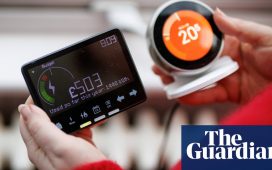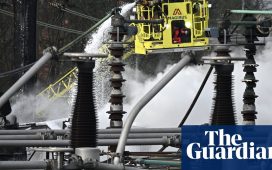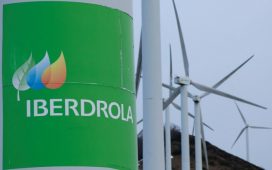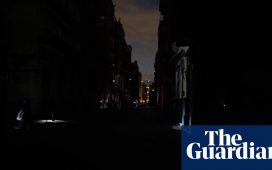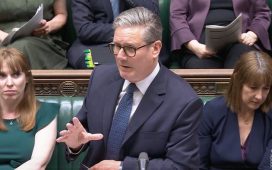Stay informed with free updates
Simply sign up to the UK energy myFT Digest — delivered directly to your inbox.
The drive by the British government and French state-owned energy company EDF to raise close to £20bn from private investors to help finance the building of a new nuclear power station on the Suffolk coast should be completed later this year, according to the energy minister responsible for the sector.
Andrew Bowie told the Financial Times he was “very confident” that the fundraising should conclude before the end of 2024, adding: “We are very much on track.”
Ministers gave the go-ahead in 2022 to build the 3.2 gigawatt Sizewell C, which would become the second large power station in Britain’s new nuclear programme.
Along with Hinkley Point C, which EDF is already building in Somerset, the plant would provide a crucial “baseload” as the country transitions to net zero with a growing proportion of intermittent renewable energy in its electricity mix.
Before construction can start, the government needs to raise an estimated £20bn from outside investors through a mix of debt and equity, with the cost clawed back through a surcharge on energy bills while it is being built.
Asked if the full amount would be raised, Bowie said: “It’s a phenomenal sum of money but we are genuinely very pleased and very positive about the reaction we have had through the capital-raising process so far.” Potential investors are thought to include a UAE sovereign wealth fund alongside some large institutions.
The government has committed £1.2bn and taken a 50 per cent stake alongside EDF in the company set up to deliver the plant.
EDF first consulted on its plans to build a new plant at Sizewell — site of one of the UK’s five remaining operational nuclear power stations — a decade ago, following the then Labour government’s decision in 2008 to replace the UK’s ageing fleet of reactors.
It is expected to take about 10 years to build, although Hinkley Point C, which uses the same reactor design, has been hit by mounting cost overruns and delays.
Last month, the government signalled it would not step in to help cover the mounting cost overruns on the project in Somerset after its Chinese partner CGN stopped making payments.
Bowie gave no indication that the government’s position had changed. “As EDF is the lead partner, it is a commercial decision for them how they finance the rest of the project,” he said. “It’s an ongoing commercial process.”
The move by CGN came after the UK government decided to limit the Chinese company’s involvement in the civil nuclear programme, including pushing it out of Sizewell C. Relations with Beijing have soured in recent years after the suppression of democratic protests in Hong Kong, its more hostile stance towards Taiwan and allegations of spying.
Bowie said the Covid pandemic and Brexit were in part to blame for the delays at Hinkley Point. “We have obviously left the EU and part of that has been an overall benefit although it has had significant issues regarding immigration and, of course, there is a global workforce at the Hinkley site right now,” he said.
Bowie’s comments came ahead of the launch on Thursday of the government’s “civil nuclear road map”, which is mostly a reiteration of the existing aim of having 24GW of nuclear generation operational by 2050. This would be equivalent to about a quarter of the country’s electricity needs compared with about 15 per cent today.
The government plans to hit this target through a mix of traditional large-scale reactors and miniaturised power stations that are quicker to build, dubbed small modular reactors.

